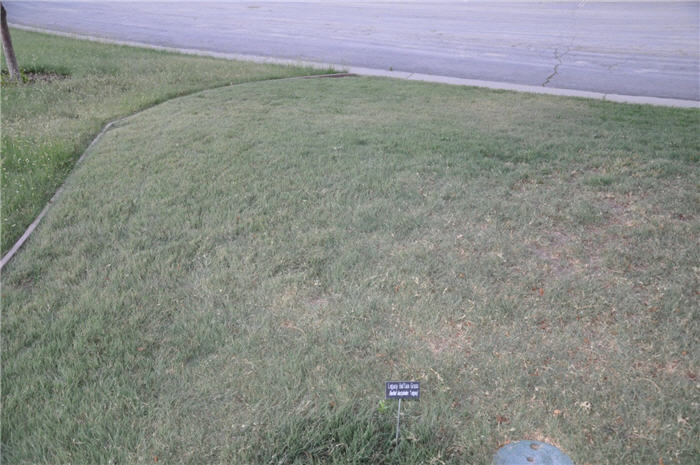| Botanical Name: Buchloe dactyloides 'Legacy' | |
| Common Name: Legacy Buffalograss |

-
Anatomy
-
Culture
-
Design
Plant Type
Ground cover, Perennial, Grass
Height Range
Under 1'
Flower Color
n/a
Flower Season
n/a
Leaf Color
Green
Bark Color
n/a
Fruit Color
n/a
Fruit Season
n/a
Sun
Full
Water
Low
Growth Rate
Moderate
Soil Type
Sandy, Clay, Loam, Rocky
Soil Condition
Average, Poor, Well-drained, Dry
Soil pH
Neutral, Basic
Adverse Factors
n/a
Design Styles
Japanese, Meadow, Mediterranean, Ranch, Spanish, Native Garden
Accenting Features
n/a
Seasonal Interest
Spring, Summer
Location Uses
Lawn, Walkways
Special Uses
Erosion Control, Mass Planting, Lawn Alternative, Naturalizing, Small Spaces
Attracts Wildlife
n/a
Information by: Stephanie Duer
Photographer:
Photographer:
-
Description
-
Notes
This buffalograss selection was chosen for its lush green look and lower habit. Has a look similar to bluegrass, but still retains its outstanding hardiness and xeric nature. Virtually pollen free. Quicken growing than the species, it forms a dense lawn that can withstand heavy foot traffic, pests, and diseases. Grows 4 to 6 inches tall, unmowed. Also greens up earlier in the spring and holds its color later in the fall than does the species.
Buffalograss needs full sun and well-draining soil. It requires only 2 inches of water per month to stay green. It is a warm-season grass, which means it will be dormant (and tawny colored) from mid fall until the warmer part of spring. Plant seed, plugs, or sod (see Guides). Requires only 3 to 4 mowings all season, or don't mow at all and have a billowy, prairie-like lawn.